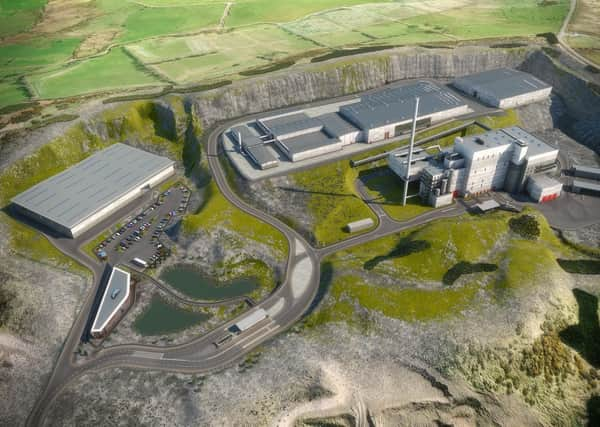NI’s reputation on world stage ‘will be damaged unless incinerator goes ahead’


The report, written by consultancy Grant Thornton and published today, looks in depth at the proposed incinerator at Hightown, near Glengormley in Newtownabbey.
The project has had a troubled history, facing local opposition from residents and eventually being subject to a High Court ruling in 2018 which said that a top civil servant had been wrong to give the blueprints the green light, in the absence of a minister.
Advertisement
Hide AdAdvertisement
Hide AdNow a spokesman handling queries about the report has told the News Letter modified plans have been submitted, and look set to be decided by either the Department for Infrastructure minister (the SDLP’s Nichola Mallon) or the Executive as a whole.
The report into the scheme concludes that the project should go ahead for a variety of reasons.
The press release accompanying the report describes it as “independent”.
The spokesman said it was commissioned by Indaver, the private firm which is lined up to construct the plant.
Advertisement
Hide AdAdvertisement
Hide AdThe report says “16 years and £15m in public and private development money will have been wasted” if it is not approved, adding that to scotch the plans would mean that “the reputation of Northern Ireland to approve complex projects will be damaged”.
In Great Britain there are currently 50 energy-from-waste plants operational (and 17 under construction).
Among other claims, the report says the development will “enhance Northern Ireland’s security of supply and increase diversity of energy production” by providing 18MW of electricity to the National Grid – “enough to power in excess of 30,000 homes”.
The report says Northern Ireland produces roughly a million metric tonnes of waste per year (working out at roughly 1.2 tonnes per household) – of which about 50% is recycled.
Advertisement
Hide AdAdvertisement
Hide AdThat leaves question marks over what to do with the remaining 500,000 tonnes of residual waste.
The incinerator would burn about 300,000 tonnes of this waste annually, the report says.
Presently, about 280,000 tonnes of waste is landfilled and approximately 130,000 tonnes exported to energy plants in Europe according to the report.
The project is largely being driven by a group called ARC21: it is a consortium of the six councils in the east of the Province, covering about 1.1 million people.
A message from the Editor:
Advertisement
Hide AdAdvertisement
Hide AdThank you for reading this story on our website. While I have your attention, I also have an important request to make of you.
With the coronavirus lockdown having a major impact on many of our advertisers - and consequently the revenue we receive - we are more reliant than ever on you taking out a digital subscription.
Subscribe to newsletter.co.uk and enjoy unlimited access to the best Northern Ireland and UK news and information online and on our app. With a digital subscription, you can read more than 5 articles, see fewer ads, enjoy faster load times, and get access to exclusive newsletters and content. Visit https://www.newsletter.co.uk/subscriptions now to sign up.
Our journalism costs money and we rely on advertising, print and digital revenues to help to support them. By supporting us, we are able to support you in providing trusted, fact-checked content for this website.
Alistair Bushe
Editor